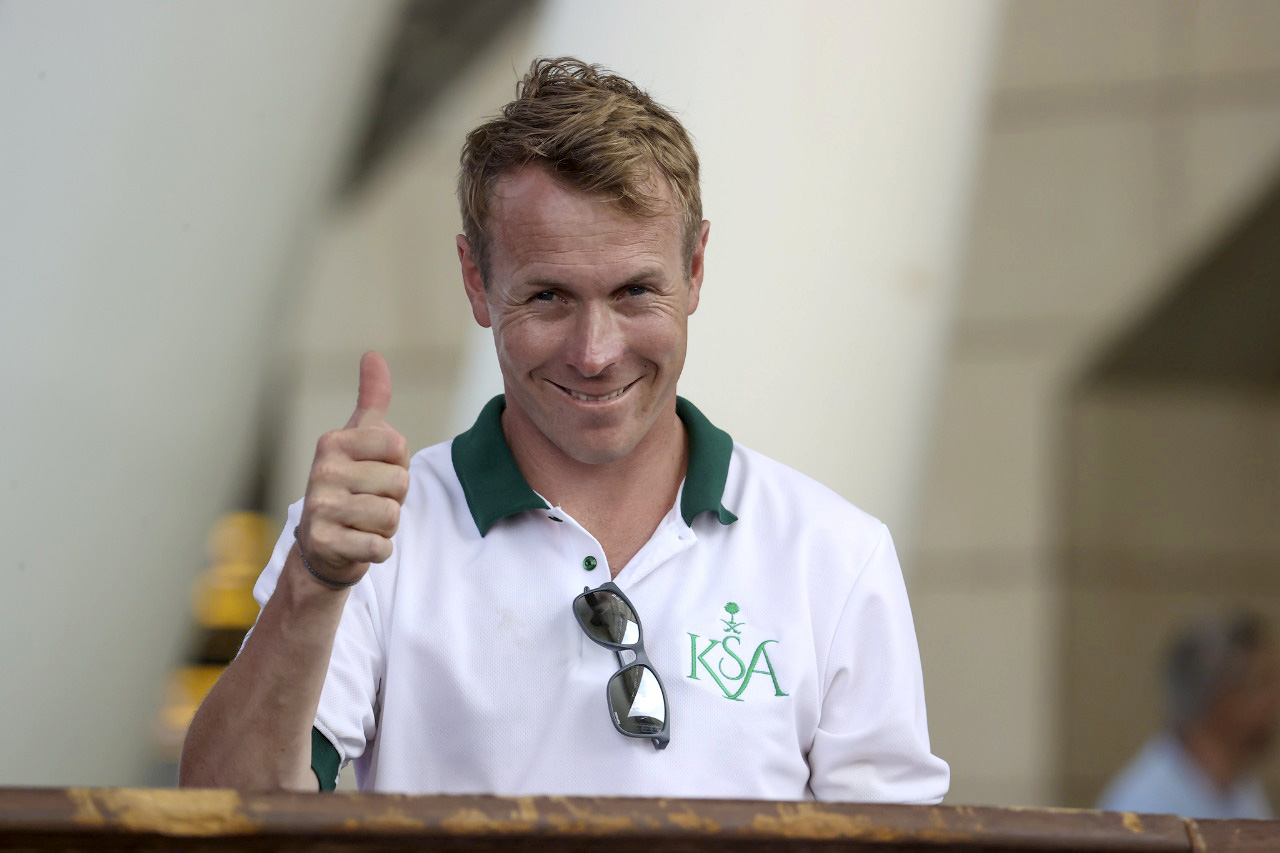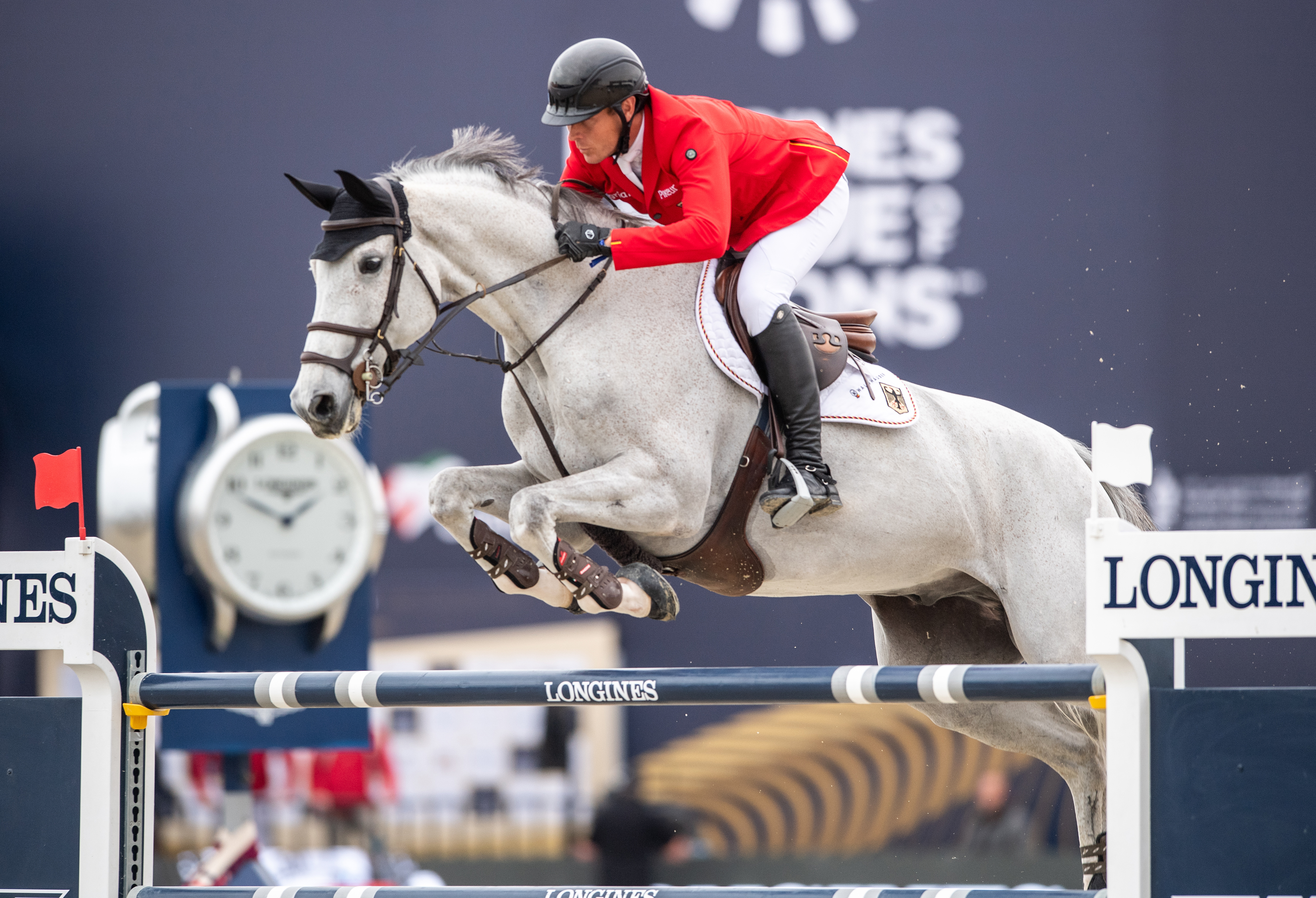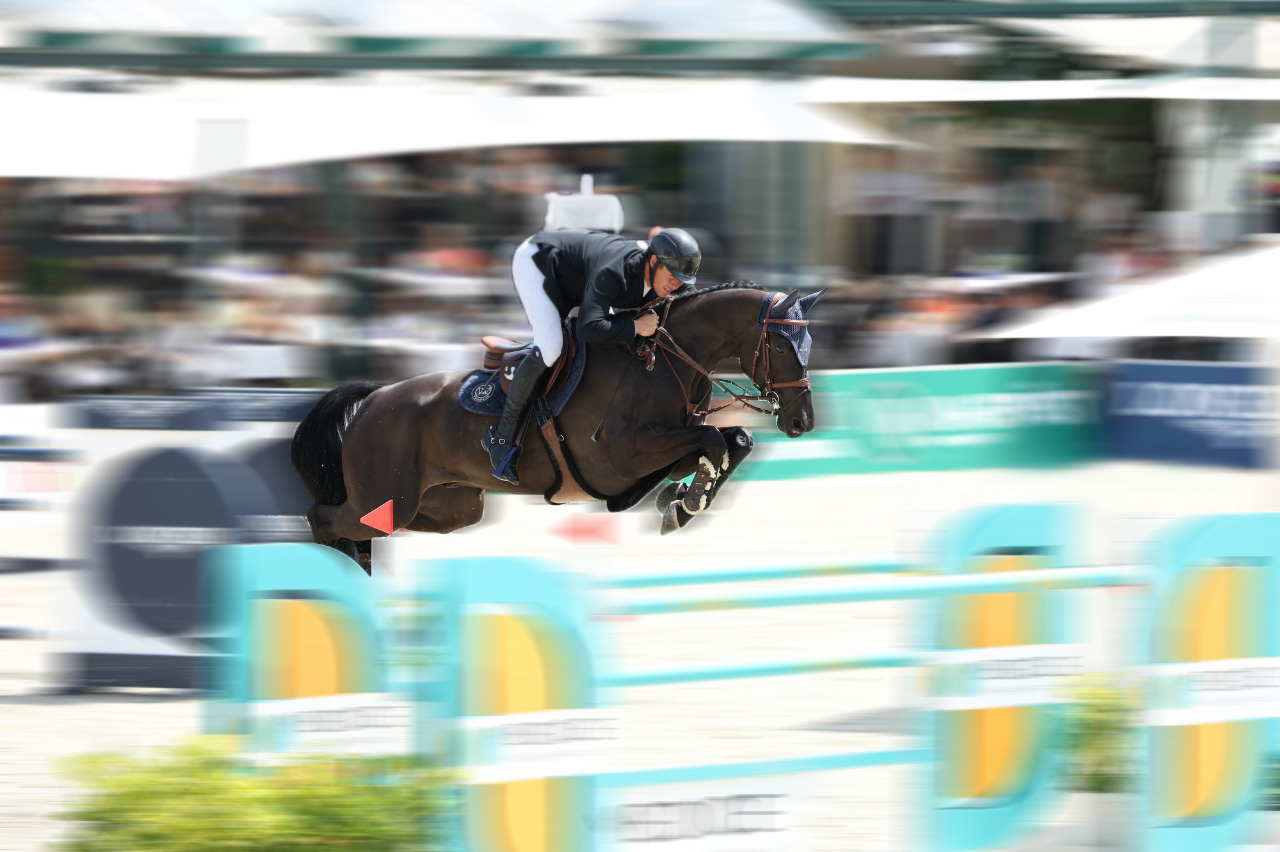DAVID WILL: WIZARD IN THE SADDLE, SAVVY IN BUSINESS
(No part of this article may be copied or reproduced in any form without the permission of HT)
David Will is a seasoned and versatile showjumping athlete balancing multiple roles: co-running a business, serving as the Chef d'équipe of an Olympic Arab showjumping team, and competing internationally. His adaptability and insightful approach stem from his early work with a diverse range of horses, emphasising the importance of understanding each horse’s unique mindset and character over breed or size.
His journey includes time in professional stables near Frankfurt, where constant exposure to new horses sharpened his ability to quickly adjust and excel in dynamic environments, an experience he considers vital for any aspiring rider.
Beyond technical skills, Will’s philosophy focuses on fostering balanced relationships with both horses and riders, encouraging self-development alongside strategic guidance. His active competition schedule keeps him connected to the latest sport advancements, ensuring his methods stay relevant and effective.
Can you explain to us how you adjust yourself to work with different types of horses?
I think that’s very much a learning process. I’ve been fortunate that after finishing school, I first worked at a stable. Actually, I was more focused on dressage, but my boss at the time did both dressage and jumping. So, right from the start, I had a variety of horses to ride, which gave me a solid foundation in working with horses from a dressage perspective.
Later, I went on to ride at Dietmar Gugler Horse Stables near Frankfurt, which was like a real professional stable. That experience was incredibly beneficial for my ability to adapt to different horses because, unlike working with a string of five horses over five years, you constantly have new horses coming in. You quickly need to adjust, whether they’re big or small, quick or slow - there’s no time to waste.
For a young rider, this environment is an excellent upbringing. Being forced to ride all kinds of horses naturally teaches you how to adapt, which I believe is very important, especially nowadays, as top horses are becoming more and more difficult to find. Limiting yourself to a specific type of horse just makes it twice as hard.
Since you mentioned types of horses, what is your favourite type, and how is it working with different personalities?
Honestly it’s not so easy for me to pick a favourite type of horse. What truly separates top horses from good ones is their mindset and character. If a horse has the right mental attitude, or if it genuinely wants to be a winner and always gives its best. That’s what I value most. It’s not about the size of a horse or its breed; it’s about their brains. Naturally, I prefer a quicker horse over a slower one because ultimately, winning is the goal when riding against the clock. But what I enjoy most is a horse with the right mindset.
What are you aiming to achieve with your ongoing partnership with Richard Vogel?
Richard Vogel’s girlfriend Sophie Hinners, is also involved in our team. She’s riding for us, and she’s been doing very well. Our initial goal in partnering was to expand beyond working individually. In the horse world riding alone can be very limiting. If you want to pursue a professional career, you often only have time for one student or one focus. To do more whether it’s competing in different disciplines or managing a variety of riders, you need a team.
We see ourselves as very much sports-oriented and business-minded. Our aim is to grow and excel both in sport and in our business. And quite frankly it’s been a working formula over the years; we’ve expanded from 20 boxes in one stable to rent four stables with many more horses. We have three riders, additional show riders working with us, and the team keeps growing.
Recently, we took a big step forward by purchasing our own stbale near Frankfurt—just 20 minutes from the city centre and the airport. It’s a fantastic location for international clients, and the area is very central. The stable is in a quiet, private setting, yet highly accessible. There’s still a lot of planning and construction ahead, but we hope to start operations by the end of 2027.
Do you think within the next five years we might see David Will and Richard Vogel hosting 5* shows together?
Yes, that’s the idea. The stable’s design allows us to host such events. It’s a third or fourth step in our development although first, we need to complete the construction on the stable, settle in, and then, when the time is right, host bigger competitions. We want to make sure everything’s properly planned so that we’re ready when the moment comes.
You’re currently the Chef d'équipe of the Saudi Arabian showjumping team, tell us about your training philosophy and how you stay up-to-date with the latest developments?
My philosophy? It’s hard to pin down one approach. I believe a key element is maintaining the right balance between guidance and encouraging self-development. Nobody wants riders who can win a Grand Prix only when I’m there. They need to learn to do it themselves.
Providing help and advice is essential, but so is allowing riders to gain their own experience and develop their own style. Staying current is crucial. I find that one of the biggest advantages for me is that I’m still competing myself. Many trainers give advice based on what worked decades ago, but the sport evolves rapidly; courses, techniques, shows all change. Being active in competition keeps me connected to these developments. This way, my training philosophy remains fresh, relevant, and I can relate to what riders are experiencing, which helps me offer better guidance.
Have you had to adapt your training style to meet the needs of specific riders?
Absolutely. To do a good job, you always have to adapt. Just as with horses, you can’t approach every rider the same way. You need to accumulate experience with each individual which allows you to tailor your methods. For example, before a Nations Cup I might need to boost a rider’s confidence. Another rider might perform best under pressure. It’s about understanding their personalities and adapting accordingly whether they’re from the USA, Europe, or elsewhere. People involved in top-level sport tend to have strong characters, and that requires a flexible, individualised approach.
When training, how do you handle challenging athletes?
It depends on the situation. For instance at a Nations Cup, if I see a rider heading in the wrong direction, I do what’s necessary to be most successful in that moment. But sometimes, that might not be the best long-term approach. It’s about context; at a big competition, you might need to be softer or more calming. At home, you might set firm boundaries and push harder. Timing and approach are everything. It’s always a balance, and you have to deal with each situation thoughtfully.
When you hear the title "Chef d'équipe" one might automatically picture someone in their 50s or 60s. But as an athlete in his 30s, how did you bump into this job? And what are your thoughts on showjumping in the Middle East?
I’ve worked extensively in the UAE and competed there multiple times, probably around eight. Through that, I got to know many riders and developed mutual respect. That’s how I came into this role.
The sport in the Middle East is developing with an exceptional spirit. There’s a real drive to grow—new stadiums, more riders, programs for young talent. I see a very motivated community eager to improve personally and professionally. It’s inspiring.
Compared to Europe, where shows can attract tens of thousands of spectators, the Middle East doesn’t have that large audience yet. Do you think that’s why some European riders hesitate to compete there? And could more promotion help?
The region’s sport scene has definitely been on the rise the past ten years. The motivation to advance and grow is strong. More international riders are coming for winter circuits, and with significant investment like Qatar’s events with €10 million in prize money, top athletes are motivated to make the effort. And as more top riders participate, the quality and excitement will increase, making it more appealing to a broader audience, similar to football. I am a huge football fan, but I do not follow all the leagues for example.
Who is your favourite team?
Bayern Munich of course! I was born near Munich so it’s always been my team. I love watching the Champions League because it’s the best against the best. That level of competition makes the sport much more exciting.
Have you been to Egypt before?
Just once as a child on holiday.
If invited for a training clinic, would you consider it?
I don’t usually do many clinics as my time is limited, especially with the travel involved for the Saudi team. But I’m open to supporting if the opportunity arises.
Do you have a routine before competitions?
Not specifically. I try to have a clear plan for each event, what I need to do to reach my goals, whether that’s winning or preparing the horse for future events. But I avoid rigid routines because honestly, sometimes the best-laid plans don’t work out.
As a younger rider, what was the hardest move to master?
Patience. It’s a vital trait. When I was young I wanted quick results, but horses require time and calmness. Learning patience, including dealing with setbacks and disappointments, was essential for my growth.
What’s your most embarrassing moment in the ring?
That’s a fun one! I once competed in Aachen’s European Grand Prix with a horse named Coleridge. I was eager to win and approached a jump that looked like a post stamp at a high speed. I misjudged the distance, and we clipped the top of the jump, pieces flying everywhere. The horse ended up sitting on his bottom, unsure how to get up because of all the debris. It was quite the memorable and embarrassing moment! HT
David was born on 21 March, 1988
On his gelding C Vier, Will won the 2021 Rolex Grand Prix of Rome, followed by a team silver win at the Longines FEI Jumping European Championship in Riesenbeck, Germany. His other results include winning CSI4*-W AlShira'aa Longines FEI World Cup Grand Prix riding Babalou HD, winning team gold in the Longines League of Nations in Abu Dhabi, team silver in the Longines League of Nations in Ocala.
Photos courtesy of FEI/Martin Dokoupil - FEI/Stefano Grasso - Baroness Ludwiga von Korff




